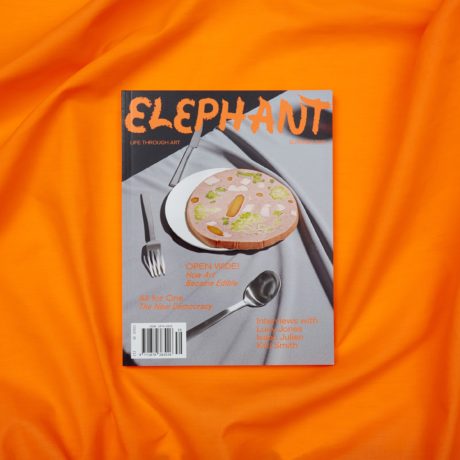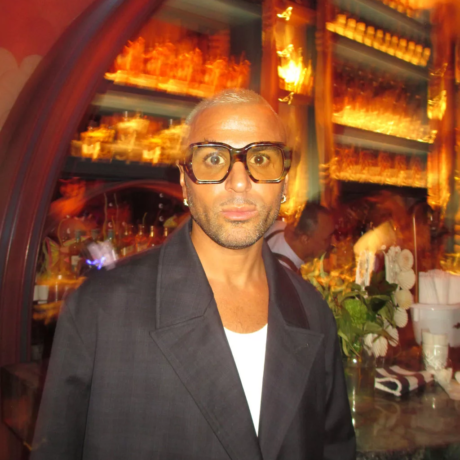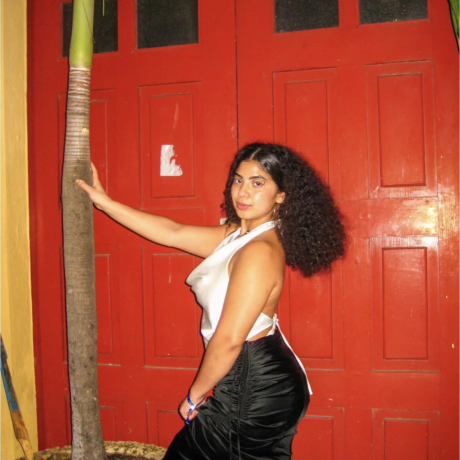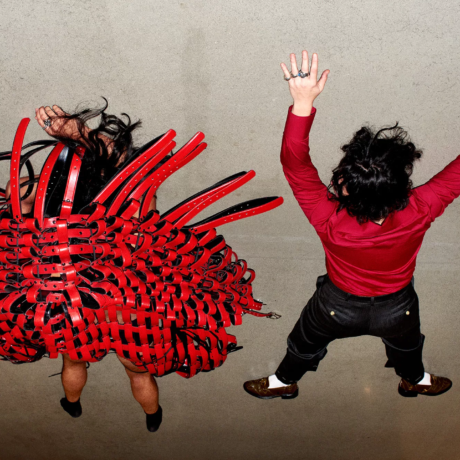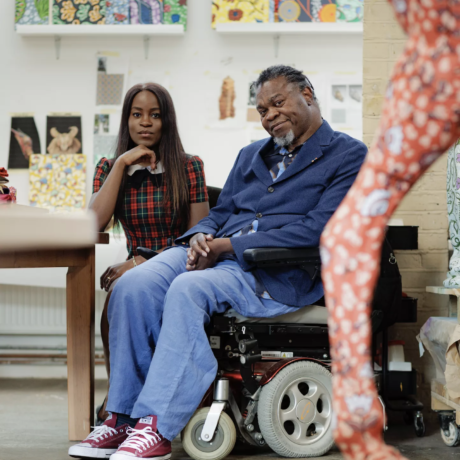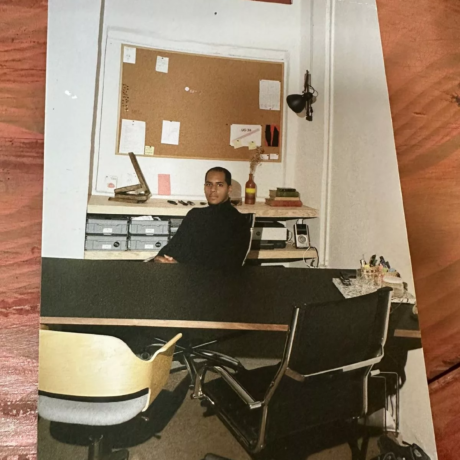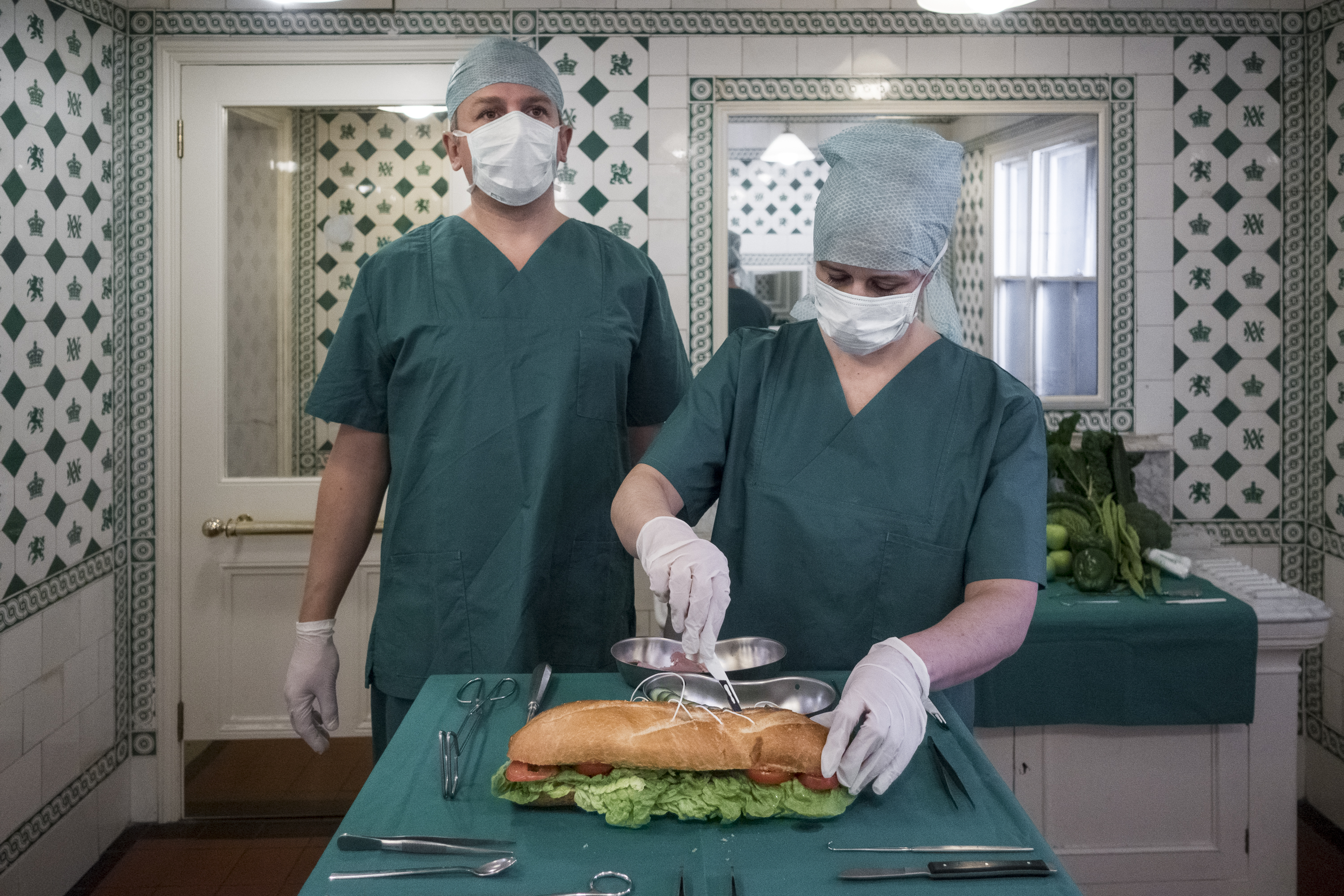
Can you tell me a little about “Food | Rules | Tomorrow”, the project you have created for the V&A’s “Food: Bigger than the Plate” exhibition?
It is a series of five short site-specific films recorded at the V&A. In every society, the natural necessity to eat is constrained by a complex system of conventions and rules that dictate how the consumption of food should actually take place. However, how we design and consume food is not just linked to tradition, culture, health, diet and gourmet critique—it’s also linked to CO2 emissions, land and water consumption, energy and transportation systems. Arguably, our “culture” can hinder us from living sustainably. In our work we use a little bit of humour to design a “better” lifestyle for an ecofriendly future. We try to change eating habits, table manners and those cultural rules that imprison us from early childhood at every single meal.
At the beginning of the work, we “spit” a hard-boiled egg onto a huge shelf in the V&A’s ceramics gallery. We had rearranged part of the shelf beforehand, replacing yesterday’s table culture (for example, cups and plates) with today’s packed, industrialized food. Another video shows us in a bathroom at the V&A, originally built for Queen Victoria. Here we performed a “sandwich operation”, with Sonja taking the meat out of a sandwich and implanting a cucumber. That is as simple as the real reduction of meat consumption could be.
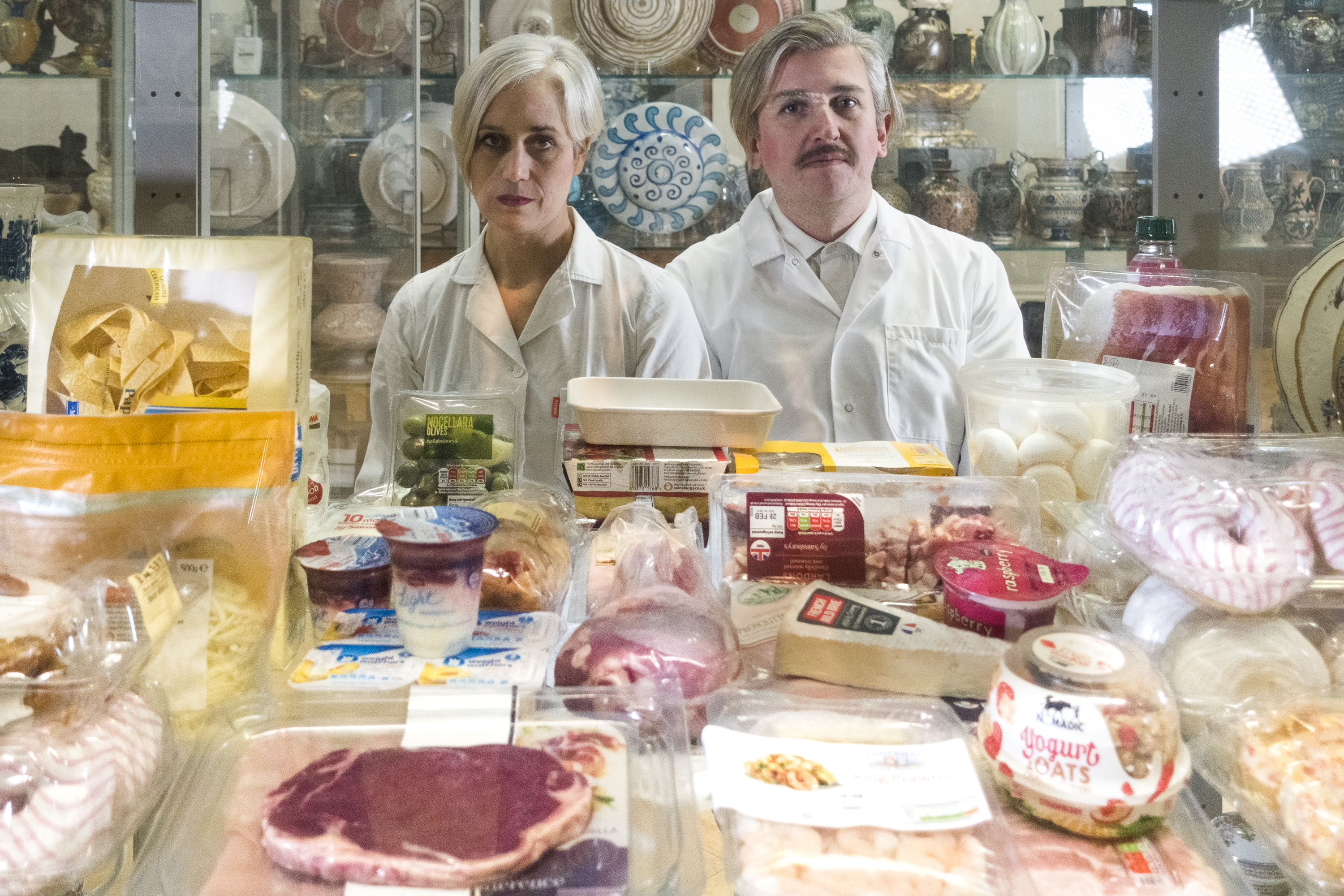
“Food production is the most important thing to consider when discussing climate change, it’s the key to life and death”
How would you describe your own relationship with food?
Normal. We eat three times a day. We gain weight. Sometimes we diet.
In your years creating work around food, how have you seen the public and political feeling around edibles and consumption changing?
At the very beginning people made fun of our ideas. Today, more people are talking about food, and movements like veganism are more popular and visible (because it’s a very good thing!). But on the other hand, public interest in food often centres on diets, gourmet, recipes and scandals. That’s ridiculous. Food production is the most important thing to consider when discussing climate change, it’s the key to life and death, and social equality… Our “conventional” food system is based on slavery, destruction, war, climate change, poison, disease. Every human being has a right to eat healthy, non-toxic, fair food. We have to fight for that.
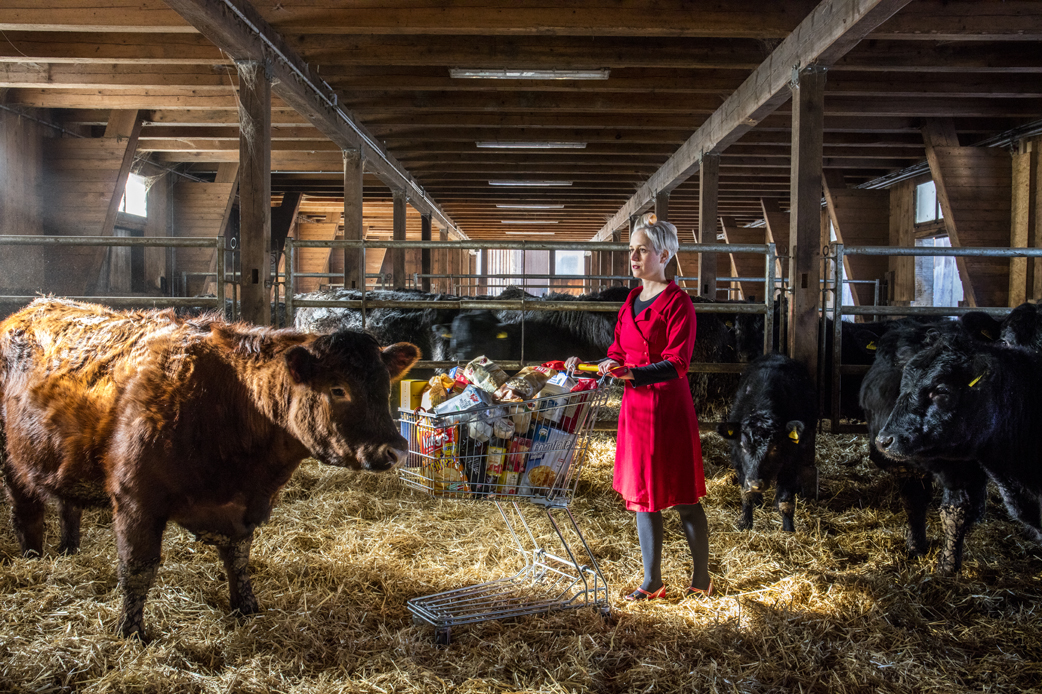
You play with elements of desire and disgust—and some uncomfortable cross-pollination of implements from other areas of life, such as surgical tools. What kind of experience do you hope for your viewers, or participants, to have?
Well, we’re from Vienna. Disgust is an element of life here! Disgust is essential for Austrian humour. Desire and disgust are necessary to touch viewers and participants directly. Furthermore, no medium is better than food to create interaction—everybody is emotionally “in”. So, if you want to work with sustainability, use food to get people involved and interested immediately.
On the other hand, we do not see that much disgust in our work. As trained architects and designers we wonder about the idea of having different but similar tools for daily actions. A scalpel is nothing more than a knife, like the ones we use at dinner tables. It looks a bit different, that’s all. One brush is for the toilet and the other one for dishwashing. We learn the function of every object when we’re young, and we strongly believe that it’s not possible to change that. So, our daily lifestyle is just culture, it’s not fixed at all. In our work, we just rearrange daily life.
“A scalpel is nothing more than a knife, like the ones we use at dinner tables”
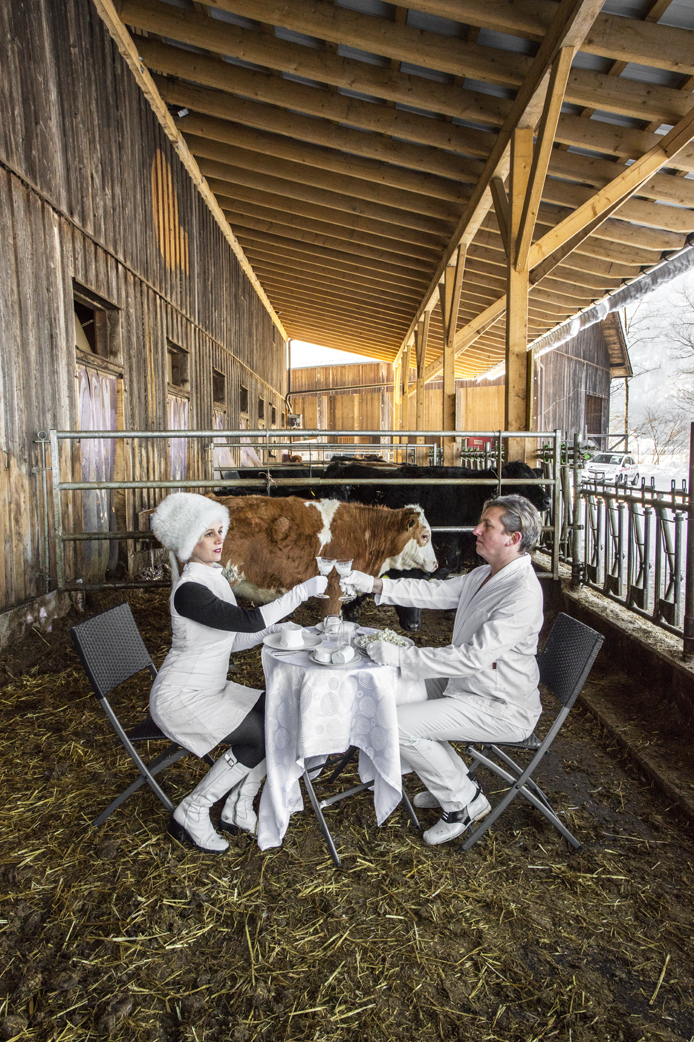
Your work has quite a grisly, unbridled aspect to it, which seems to connect with our more animal side. Now we tend to eat in a very refined way, even if our dish has quite a bit of violence behind it. Do you see a hypocritical element to the way we eat now?
Cool question! First of all: what is not hypocritical in Western civilizations? But, yes as human beings we’re aware of an absolute dilemma: we have to kill to survive. Absolutely every edible object was “alive” before (except salt). And we are what we eat. Every single cell is built by our food. Isn’t it hard to digest that knowledge? Maybe we try to use culture to forget our natural side… who knows? On the other hand, the “refined way of eating” shows more than the difference of nature (if nature exists anymore) and culture. Table manners are a social tool. They create differences between people—between us and them. It’s hierarchy, patriarchy, racism that is indeed grisly and unbridled—not the work of Honey & Bunny. We are just interested in beauty.
This article originally featured in issue 39
BUY ISSUE 39